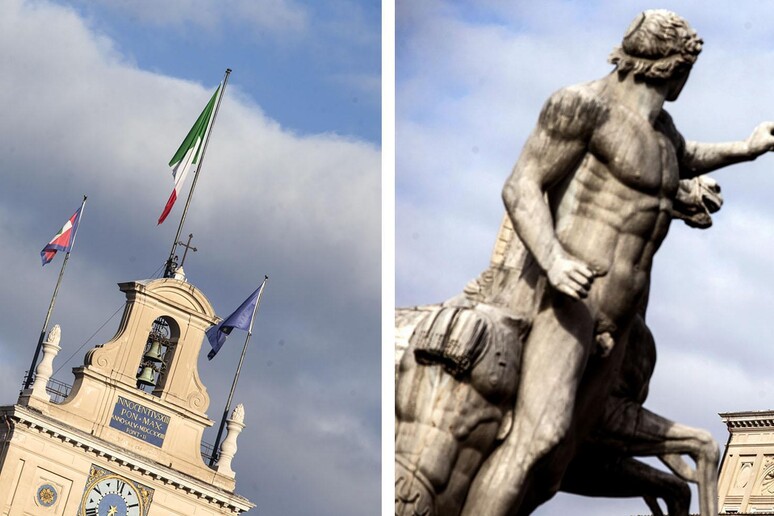Senate Speaker Pietro Grasso on Wednesday took office as interim president of Italy after Senator Giorgio Napolitano stepped down.
While no front runners have emerged to replace Napolitano, Premier Matteo Renzi said earlier in the day it would be "reasonable" to expect Italy will have a new president by the end of the month.
Italian MPs and representatives of the country's 20 regions will gather January 29 to begin voting on who should step into Napolitano's shoes. In Italy, the president is elected in a joint session by the 630 members of the House, the 320 members of the Senate plus 58 regional delegates. Each region appoints three delegates, two representing the majority and one the opposition. The only exception is Valle d'Aosta, which has one delegate.
The 1,010 'grand electors', as they are known, gather in the House to vote. The House Speaker presides over the secret voting with the Senate Speaker at his or her side. Tradition calls for Senators to vote first, followed by deputies and then regional delegates.
Each voter is required to step into one of the two booths located under the speaker's rostrum and write out in full the name of his or her chosen candidate.
It may take a number of ballots for a winner to emerge.
Under the Constitution, a two-thirds majority of 674 votes is required for a candidate to be elected on the first, second or third ballots. After that, an absolute majority of 506 votes is required.
Napolitano was elected in the fourth round of voting in 2006, and re-elected in one round in 2013 after all the main parties pleaded with him to stay.
Carlo Azeglio Ciampi was elected president in 1999 on a first ballot in an unusual show of unity, receiving 707 votes out of a possible 990. But it took 13 days to elect his predecessor Oscar Luigi Scalfaro in 1992 with 16 rounds of voting.
Only two other presidents apart from Ciampi were elected in one bout of voting: Enrico De Nicola, Italy's first president who was elected in 1946, and Christian Democrat Francesco Cossiga, elected in 1985. The most ballots occurred in 1971, when it took 16 days and 23 rounds of voting to elect Christian Democrat Giovanni Leone as head of State.
Under Italy's 1948 Constitution, the president must be over 50 and serves a seven-year mandate. The Senate Speaker acts as deputy president.
Regarded as the impartial guarantor of the Constitution, the president is meant to be above the party fray and represent national unity. He is the titular head of the Council of Magistrates (CSM), the judiciary's self-governing body, and the head of the armed forces.
He has no veto power over legislation, but must sign bills into law and can send them back to parliament if he deems them unconstitutional or lacking the necessary financial cover. He has no role in foreign policy, but ratifies international treaties on the authorisation of the House. It is his task to give the winner of Italy's elections the mandate to govern. He also has the power to dissolve parliament, to appoint up to five new life Senators, and to grant pardons.
ALL RIGHTS RESERVED © Copyright ANSA











